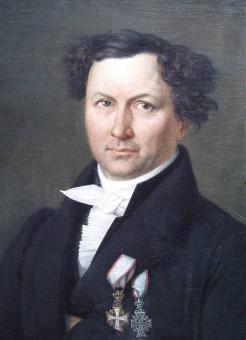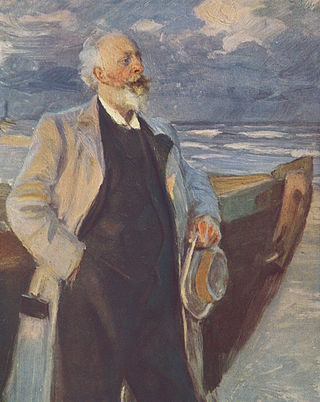
The Royal Danish Academy of Music, or Royal Danish Conservatory of Music, in Copenhagen is the oldest professional institution of musical education in Denmark as well as the largest, with approximately 400 students. It was established in 1867 as Kjøbenhavns Musikkonservatorium by Niels Gade – who was also the first rector –, J.P.E. Hartmann and Holger Simon Paulli on the basis of a testamentary gift from the jeweler P.W. Moldenhauer, and with inspiration from the Leipzig Conservatory and a conservatory founded by Giuseppe Siboni in Copenhagen in 1827. Carl Nielsen was a teacher in the period 1916–1919 and the rector during the last year of his life.

Johan Ludvig Heiberg was a Danish philologist and historian. He is best known for his discovery of previously unknown texts in the Archimedes Palimpsest, and for his edition of Euclid's Elements that T. L. Heath translated into English. He also published an edition of Ptolemy's Almagest.
Holger is a Scandinavian masculine given name derived from the Old Norse name Hólmgeirr, a compound of hólmr 'island', and geirr 'spear'. It is most common amongst Danish people. It is uncommon as a surname, but is found as Holkeri in Finnish. People with the name include:

Jørgen Hansen Koch was a Neoclassical Danish architect. He was chief of the national Danish building administration from 1835 and director of the Royal Danish Academy of Fine Arts from 1844 to 1849.

Frederiksberg Ældre Kirkegård is a cemetery in Frederiksberg, Copenhagen. It was established in 1734 behind Frederiksberg Church.

Drachmannlegatet is a Danish literary award founded in 1917, based on funding derived from the entrance fee to Drachmanns Hus in Skagen. The winner is announced annually on 9 October, the anniversary of the birthday of Danish writer and painter Holger Drachmann (1846–1908).




